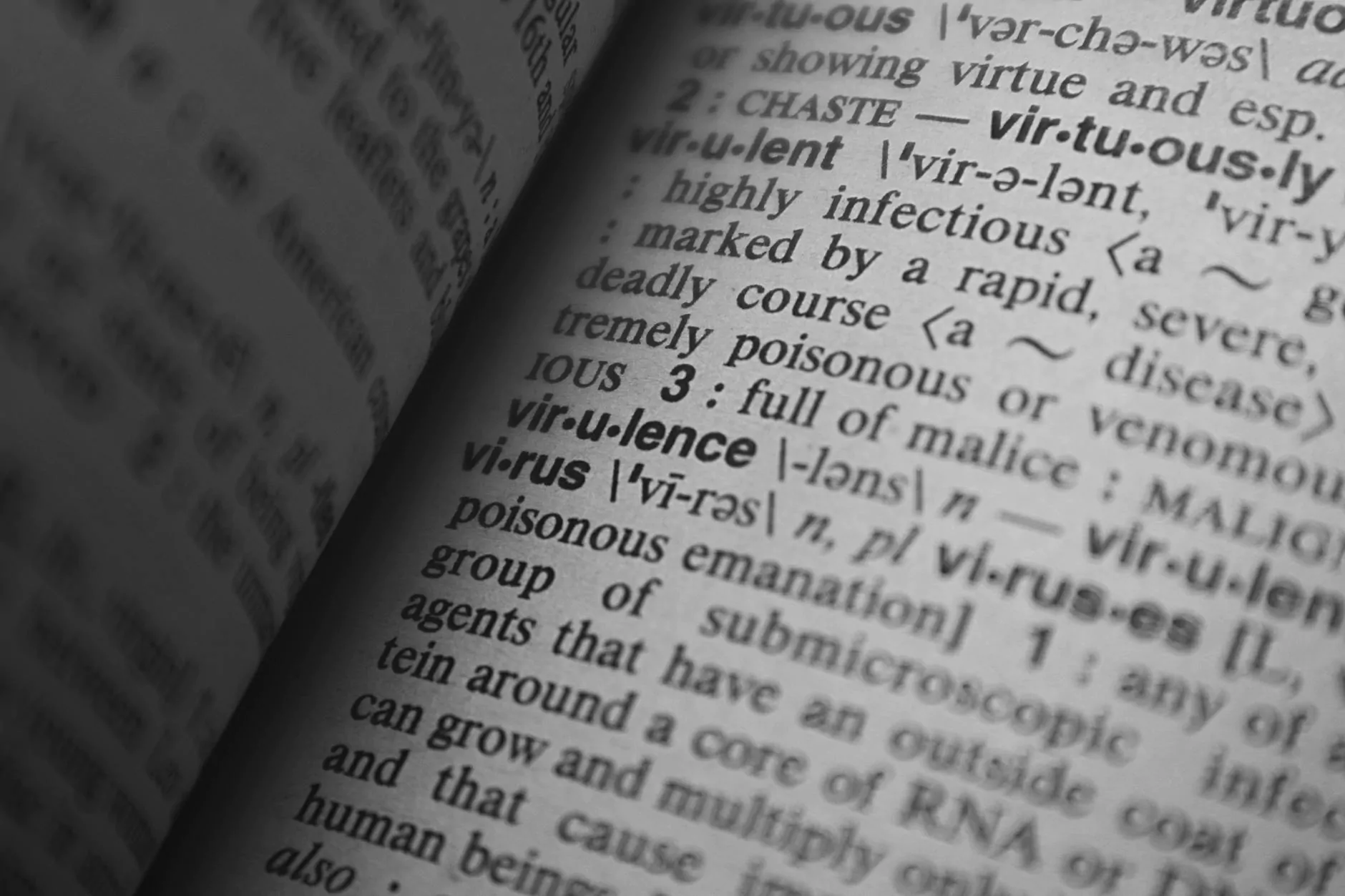492 – Especially vs. Specially
English Grammar Lessons
Welcome to NJCLT, your go-to resource for mastering English grammar! In this comprehensive guide, we will delve into the subtle differences between the words "especially" and "specially." Knowing how and when to use these words correctly can greatly enhance your communication skills and boost your confidence in English language usage.
The Definition and Usage of "Especially"
Especially, typically used as an adverb, is defined as "particularly" or "particularly so." It is employed to emphasize something, to indicate a higher degree of importance, or to single out an individual or group from others. The word "especially" also implies exclusivity, making it an essential tool in effective communication.
For example, consider the sentence: "I love all fruits, but I especially enjoy oranges for their refreshing taste." In this context, "especially" emphasizes the preference for oranges over other fruits.
When to Use "Especially"
Here are some situations where the word "especially" should be used:
- 1. To highlight a preference: "She loves reading, especially historical novels."
- 2. To indicate something exceptional or remarkable: "The performance was outstanding, especially the singing."
- 3. To express emphasis or increase the significance of something: "Please take extra care, especially in hazardous areas."
- 4. To single out a particular individual or group: "We would like to thank everyone who participated, especially our dedicated volunteers."
The Definition and Usage of "Specially"
On the other hand, specially, usually used as an adverb or adjective, means "in a special manner" or "for a particular purpose." This word highlights the unique qualities or characteristics of a specialized action, object, or person, adding specificity to the description. Understanding the correct usage of "specially" is crucial for clear and effective communication.
For instance, in the sentence: "The chef prepared a specially designed menu for the event," the word "specially" emphasizes the customized nature of the menu tailored for the occasion.
When to Use "Specially"
Here are some instances where the word "specially" should be used:
- 1. To describe something created or done for a specific purpose: "She bought a specially designed dress for the wedding."
- 2. To emphasize the distinct or unique qualities of something: "The artifact was displayed in a specially crafted glass case."
- 3. To highlight an action done in a particular way: "The team was trained specially to handle emergency situations."
Mastering English Grammar with NJCLT
If you're passionate about refining your English language skills and becoming an expert in grammar, NJCLT is here to support you every step of the way. Our experienced team of language enthusiasts has developed comprehensive resources and engaging learning materials to help you achieve your language goals.
Whether it's understanding the nuances of word usage or mastering complex grammar rules like "especially" vs. "specially," NJCLT offers a wide range of lessons, exercises, and interactive quizzes to strengthen your grasp of the English language. Join our community of learners today and unlock your full language potential!
Introducing the best place to learn and improve your English grammar skills – NJCLT. With our meticulously crafted lessons and comprehensive resources, you'll find yourself mastering even the most challenging grammar concepts in no time. We understand the importance of clear communication and aim to empower our learners with the knowledge and tools needed to excel in grammar usage.
Don't miss out on the opportunity to enhance your English language proficiency and gain confidence in expressing yourself fluently. Explore NJCLT's vast library of grammar resources, join interactive discussions with fellow learners, and discover your language potential today.




